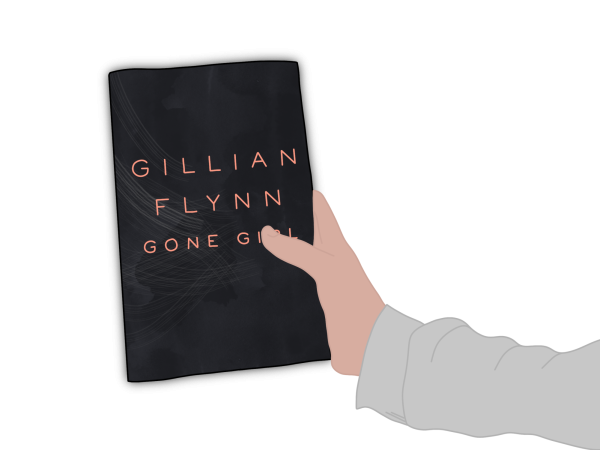Book Review: The Truth About ‘Verity’
“Verity,” a thrilling and terrifying romance novel, was published in 2018 and written by the legendary Colleen Hoover. Like others who indulge in Hoover’s novels, I would recommend approaching her books carefully, as the contents of her books can be graphic. If you have ever read the classic “It Ends With Us,” it will not come as a surprise that “Verity” involves psychological darkness and a plot that can be mind-bogglingly backwards and grim.
To summarize: Lowen, an aspiring young author struggling to pay her bills and make a name for herself, is approached with a seemingly once-in-a-lifetime opportunity. The offer is for her to write the next three books of a known and loved series of novels. As a result, she will be placed into an unfamiliar spotlight and expected to uphold a well-established legacy. Verity, the original author of the series, suffered a tragic accident, leaving her bed-ridden and unable to continue on her own. The proposition is presented to Lowen by Jeremy Crawford, the husband of the author and a man she evidently has a connection with. After some deliberation, Lowen reluctantly agrees to the offer with both her debts and aspirations in mind.
The storyline furthers when, in order to better immerse herself into Verity’s writing style, Lowen moves into the Crawford family home. She is prepared to analyze and reframe Verity’s notes and outlines into her own work. To her surprise, Lowen unearths an unfinished memoir in the midst of her cluttered office. These pages hold Verity’s confessions and feelings that she never wanted anyone to read, especially not Jeremy. Her words reveal the reality of her “chronic” life, the unfortunate tale of a couple who can’t seem to escape misery and pain. Lowen becomes addicted to examining the diary; the words are like a car crash she can’t seem to peel her eyes away from. Lowen cannot decide what to do with the information she has found. She toils between telling Jeremy and just keeping to herself. But, as she reads on, for Jeremy’s sake and her own, she can’t withhold the truth any longer. The conclusion of the book, especially the last chapter, is utterly unexpected.
My feelings on the book are a little scattered. At times, I thought the content was monotonous, and the plot occasionally felt like filler. The portions that progressed the story line, though, were always extremely compelling. One of my favorite aspects of the story is that not a single character can be trusted. The moment you begin to discover certain attributes of a character, your perception of them can be instantly convoluted. The many eerie and traumatizing situations always had me thinking ahead.
“Verity” is certainly one of the more unrealistic and hyperbolic stories Hoover has written. It was definitely more of a slow burn, making it enjoyable to read over a period of time. For me, the second half of the book really takes the cake. The writing style was mesmerizing, and the way Hoover depicts emotional stress is unparalleled. Finally, I really appreciate how Hoover isn’t afraid to dive into challenging topics like abortion, abuse and mental illness. She is able to tackle real life issues in a meaningful way.
If you’re looking for a book like “Three Little Lies” or “A Simple Favor” and a book that will put you through an emotional rollercoaster, read “Verity.”
My final rating of this book: 4.5/5
Spoiler Discussion Below:
I thought the twist at the end was my favorite part of the story and was the portion that threw me for the biggest loop. The letter didn’t necessarily invalidate anything that came before it, but instead made me reevaluate the truth. I choose to believe that Verity wasn’t innocent and that she faked the extent of her injuries merely to be with Jeremy. The thought of Lowen ending up with a killer just doesn’t sit right with me. There is also proof that Verity was the true villain: Her relationship with her parents has been damaged throughout her life, separate from what her diaries say. The final decisions Lowen made also weigh on me. If I were in her place, would I have torn up the letter, or would the reality of the situation boil up within me until I had no choice but to tell someone?








